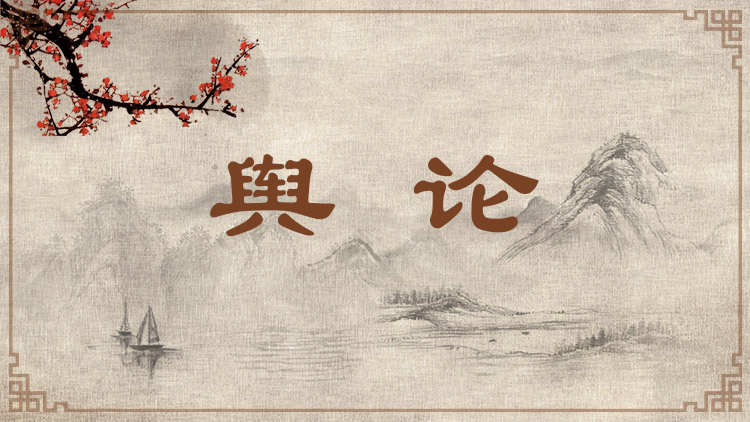舆论 Public Opinion

众人的言论。“舆”指众人、民众,“论”即议论、看法或意见。历来开明的执政者在决策形成之前都注重广泛采集众人包括普通民众的意见,并希望决策符合下情,以最大限度地保障决策的合理性和可行性。至近代,“舆论”与public opinion对译,成为有政治学、伦理学、社会心理学等多学科基础的概念,一般指代表社会大众或与国民意见一致的言论。古代“舆论”一词属于民本范畴,现代“舆论”一词属于民主范畴,两者本质相异,又可转换相通。
This term means widely holding ideas and attitudes among the general public. The term is made up of two Chinese characters, with the first yu referring to the general public and the second lun to commentaries, perspectives, or opinions. All wise rulers in history paid attention to consulting the general public for their opinions before making policy decisions, hoping that the resultant policy would meet the needs of the people and be rational and feasible. In modern times, the term is used as the Chinese equivalent of "public opinion" and generally refers to the views of people in the society or prevailing points of view reflective of what most people think. Therefore, it has become a basic concept for many disciplines, such as politics, ethics, and social psychology. In ancient times, the term reflected the governing principle of "for the people." In modern times, however, it reflects the governing principle of "by the people." These two are different in nature, but are interchangeable and interrelated.
引例 Citations:
◎帝雅好儒士,留心贡举。有时微行人间,采听舆论,以观选士之得失。(《旧唐书·宣宗纪》)
唐宣宗素来赏识儒士,留意科举的情况。他有时微服到民间访察,听取民众的议论,以便了解人才选拔是否得当。
Emperor Xuanzong of Tang valued Confucian scholars very much and paid close attention to the selection of officials through imperial examinations. He would sometimes travel around in plain clothes to hear what people say so he could know whether the selections were well made. (The Old Tang History)
◎爰询廷臣,博采舆论,佥谓拯弊必合更张。(《元史·食货志五·钞法》)
(我)于是与朝中大臣商议,广泛听取众人的意见,他们都认为拯救弊端,必当改革。
I have therefore discussed with the ministers to hear broadly their opinions. They all believe that reforms are necessary in order to redress the ills and wrongs. (The History of the Yuan Dynasty)
◎虽庙堂处分,未必尽协舆论;而缙绅公议,颇足维持世风。(《明史·马经纶传》)
即便是朝廷的决定,也不一定都与大众的意见一致;而士大夫的共同看法,则足以维持社会风气。
Even decisions by the imperial court may not be always in agreement with the public opinion. However, the general consensus by higher officials is enough to keep the social atmosphere healthy. (The History of the Ming Dynasty)
推荐:教育部 国家语委
供稿:北京外国语大学 外语教学与研究出版社
责任编辑:刘怿莎





